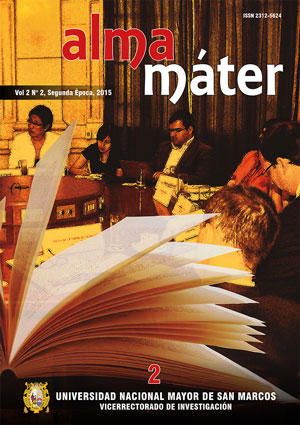PERU STUDIES AND SOCIAL SCIENCES
Keywords:
Social sciences, Peruvian thinkers, Culture, Social change, Globalization.Abstract
The article presents an overview of the Scientific Production in Social Sciences about Peru. From the pre-Hispanic period to the current times; it collects the contributions of emblematic Peruvian thinkers of their age and generation as well as the academics who were linked to the Universidad Nacional Mayor de San Marcos. They were practitioners of disciplines such as anthropology, archeology, history and Sociology; and were committed to the scientific task oriented to the transformation of the Peruvian society. The matters and proposals of the scholars of our so changing and complex reality are exhibited: the origin of the Peruvian culture, the recovery and the value of the archaeological sites, the Indigenism, the otherness, the our diverse, the history of elites and mentalities, the social equilibrium, the revolution, the liberal democracy as well as the neoliberalism; and the globalization with its theoretical references.Downloads
Published
Issue
Section
License
Copyright (c) 2015 Bernardino Ramírez Bautista

This work is licensed under a Creative Commons Attribution-NonCommercial-ShareAlike 4.0 International License.

Alma máter segunda época by Vicerrectorado de Investigación y Posgrado is licensed under a Creative Commons Reconocimiento-NoComercial-CompartirIgual 4.0 Internacional License.
Creado a partir de la obra en http://revistasinvestigacion.unmsm.edu.pe/index.php/alma/index.
AUTHORS RETAIN THEIR RIGHTS:
a. Authors retain their trade mark rights and patent, and also on any process or procedure described in the article.
b. Authors retain their right to share, copy, distribute, perform and publicly communicate their article (eg, to place their article in an institutional repository or publish it in a book), with an acknowledgment of its initial publication in Alma máter segunda época.
c. Authors retain theirs right to make a subsequent publication of their work, to use the article or any part thereof (eg a compilation of his papers, lecture notes, thesis, or a book), always indicating the source of publication (the originator of the work, journal, volume, number and date).



